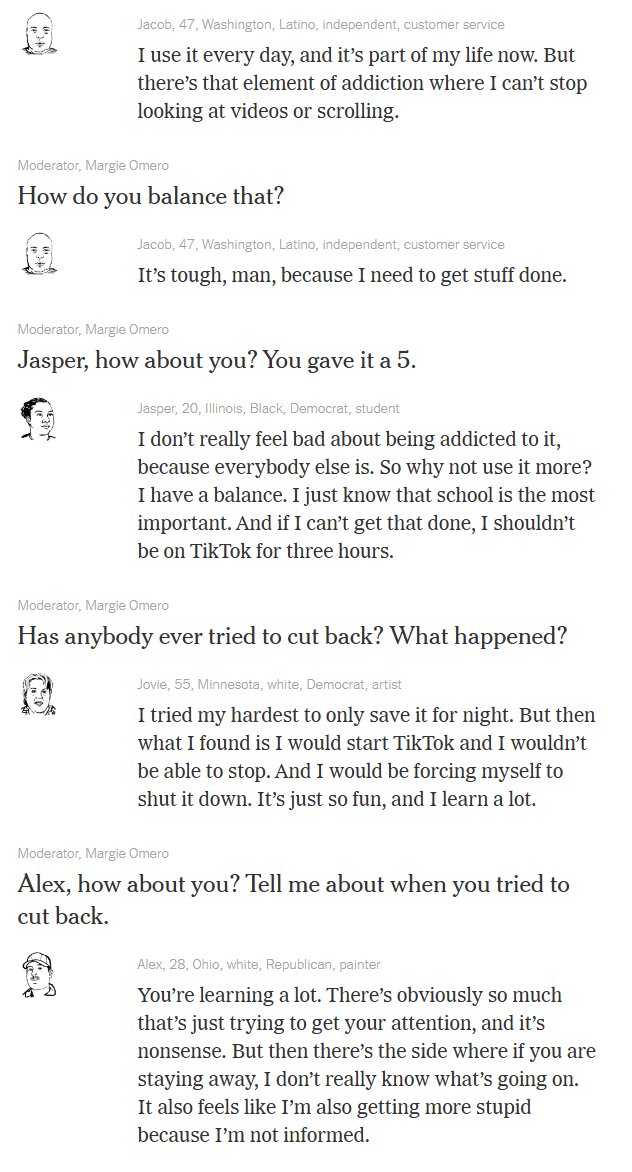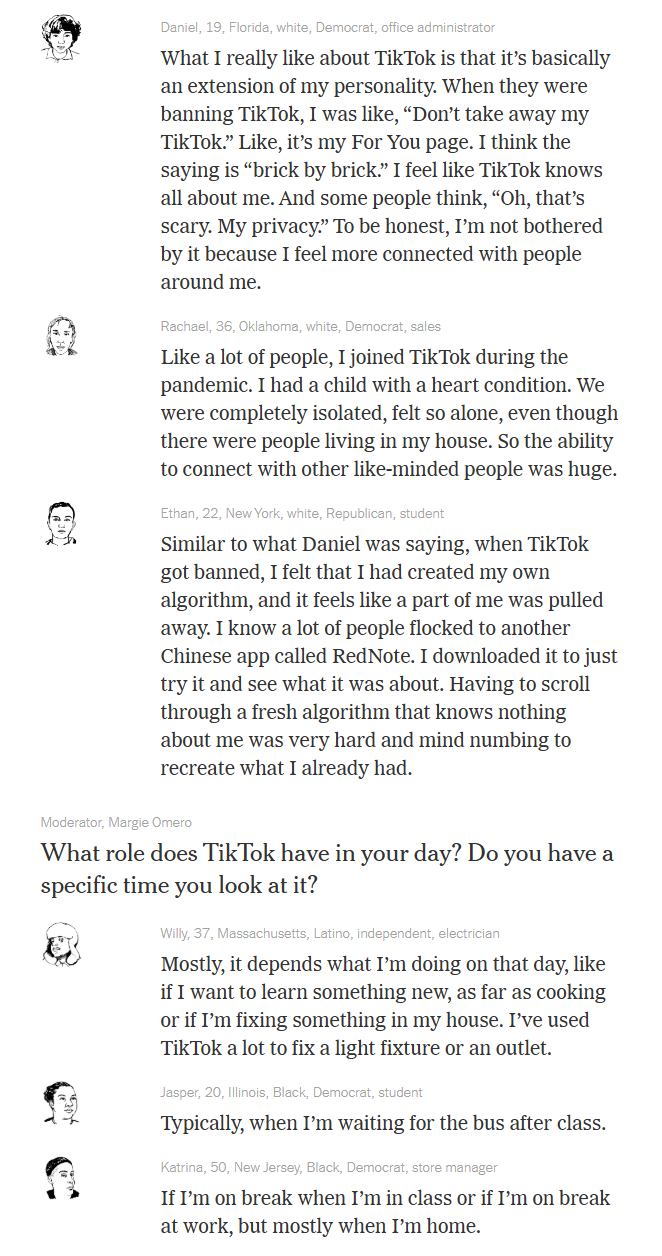Over the past ten years, the way Americans consume and share information has undergone a dramatic shift. Social media has sparked widespread cultural concern, fueling debates about addiction, shrinking attention spans, political influence, mental health, and the evolving nature of news consumption—particularly among teenagers. At the center of this transformation is TikTok, which has risen to become the go-to app for millions of Americans.
Yet, this new reality leaves many feeling conflicted. Few people seem to have the ideal relationship with their phones. While they appreciate the entertainment and connectivity social media offers—whether during a bus ride or while tackling a home repair—they often resent the endless “doomscrolling” it encourages. This tension was evident among the 12 avid TikTok users who participated in a recent Times Opinion focus group. These users shared their thoughts on how they engage with the app, the type of news they encounter, and their views on topics ranging from former President Trump to China and the potential U.S. ban of TikTok.
The participants, who varied in age, geographic location, and background, expressed a mix of enthusiasm and unease about the role smartphones and social media play in their lives—sentiments that may resonate with many. They praised TikTok and other platforms for their entertainment value and ability to keep them connected. However, they also described the experience as “consuming,” “addictive,” and at times “toxic.” Some admitted to wanting to cut back on usage but felt out of the loop when they did. “If you stay away, you don’t really know what’s going on,” one participant remarked. “I feel uninformed.”
While none of the participants supported banning TikTok, many expressed reservations about their children using the app. This duality reflects the broader struggle to navigate the benefits and drawbacks of social media in today’s world.
The potential TikTok ban adds another layer of complexity. Last year, Congress passed legislation requiring TikTok’s Chinese parent company, ByteDance, to sell its U.S. operations to an American entity or cease operations in the country, citing national security concerns. The issue came to a head in January when TikTok briefly went offline for a day.
In response to the ban threat, some focus group participants said they had turned to alternative apps like RedNote, a Chinese platform. However, they described a sense of loss while using it, as they tried to replicate the unique TikTok experience with a new algorithm.
The U.S. has a long history of restricting foreign ownership of media companies, but TikTok’s case is unprecedented given its massive user base of over 100 million Americans. Forcing a sale or banning the app outright represents a significant move, yet there has been little public effort by politicians to explain the national security rationale behind it. Many daily TikTok users remain unaware of these concerns—and even those who are informed aren’t necessarily convinced.
As Americans grapple with the profound impact of social media on their lives, the future of TikTok—and the broader digital landscape—remains uncertain. For now, the challenge lies in finding a balance between embracing the benefits of these platforms and mitigating their downsides.


Why?
I get a lot of my news from TikTok and X/Twitter. And I like to assume that everything I’m seeing is slightly untrue in some way.










